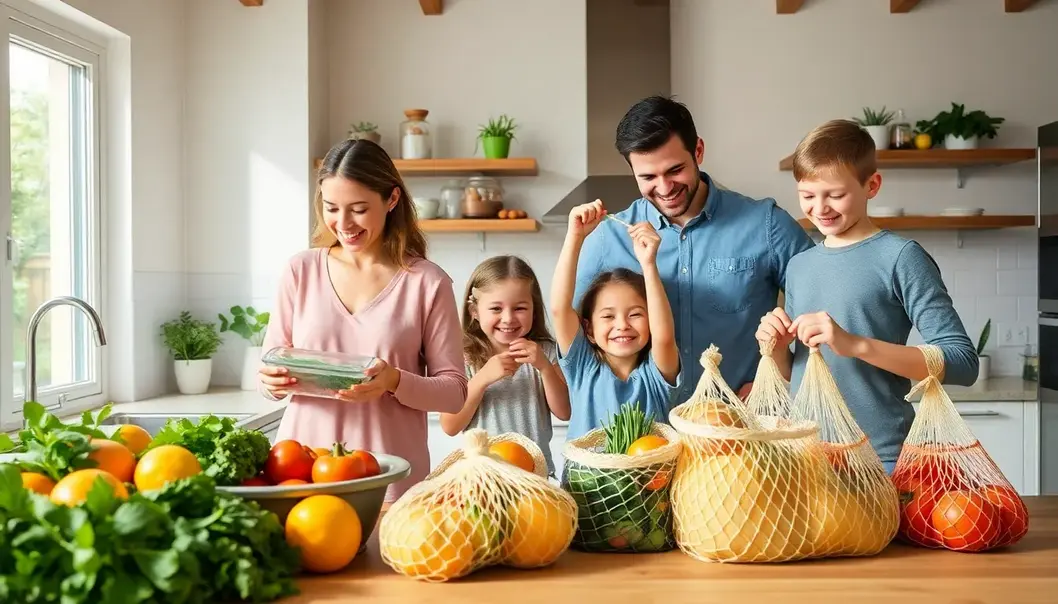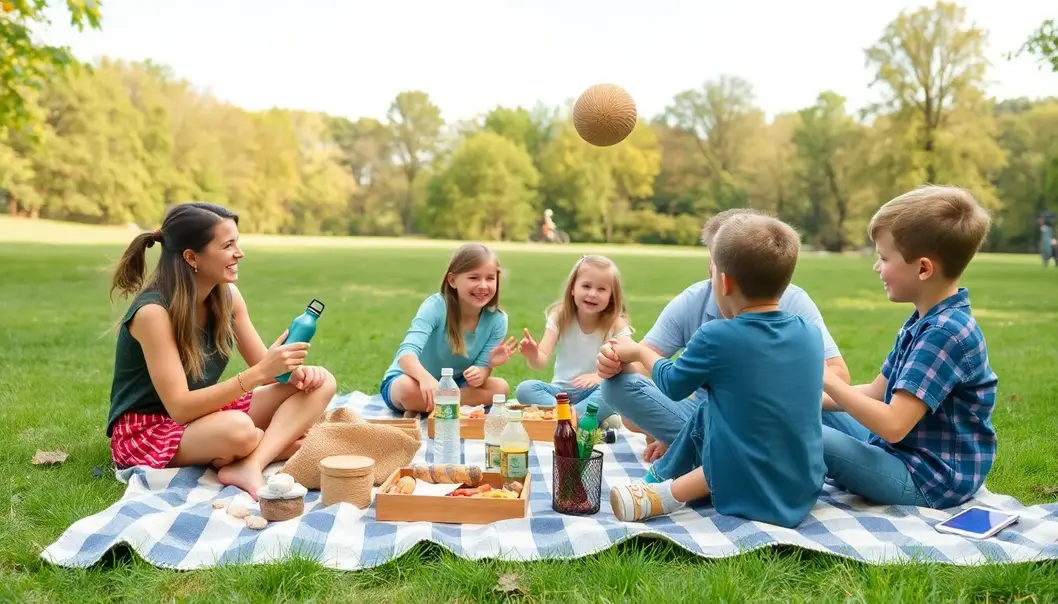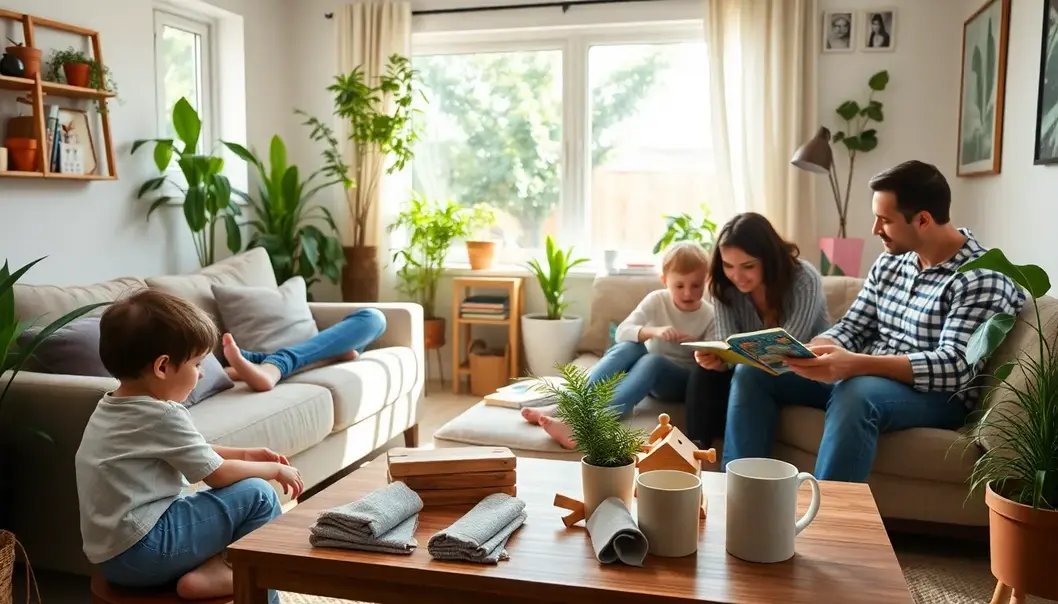Raising a family in a sustainable way might seem daunting, but it doesn’t have to be. Adopting a zero-waste lifestyle can be simplified through easy, everyday swaps that benefit your family and the planet. From using cloth bags at the grocery store to swapping plastic toys for wooden ones, there are actionable steps parents can integrate seamlessly into their routines. These changes can teach children about sustainability while reducing your household’s environmental footprint. Easing into a zero-waste lifestyle isn’t just possible; it’s an opportunity for families to grow together, fostering mindfulness about consumption and waste. Here are accessible strategies designed to fit a busy family’s life.
Sustainable Kitchen Practices

The kitchen is often the heart of a home, and transforming it into a zero-waste haven can significantly reduce a family’s ecological footprint. Making the kitchen sustainable involves simple yet effective changes that ensure less waste and promote healthier habits.
One of the easiest swaps is replacing plastic storage containers with glass or stainless steel options. These alternatives not only last longer but also safeguard food from potential chemical leaching associated with plastics. Introduce reusable produce bags for your shopping trips to cut down on single-use plastic bags. These bags are not only durable but also washable, ensuring extended usability.
Another cornerstone of a zero-waste kitchen is composting kitchen waste. By diverting food scraps from landfills, families can reduce methane emissions and nourish their gardens with nutrient-rich compost. Setting up a composting system can be as simple as keeping a small bin on the kitchen counter or in the backyard. Inviting children to participate in composting helps them understand the cycle of food and fosters eco-consciousness from a young age.
Bulk buying presents an excellent opportunity to minimize packaging waste. Purchasing food like grains, pasta, and snacks in larger quantities, often available in bulk sections, reduces the need for small, individually packaged items. Not only is this beneficial for the environment, but it also usually results in cost savings. Encourage children to help with organizing bulk items at home by transferring them to labeled jars, making them feel involved in maintaining the household’s zero-waste efforts.
Recycling plays a crucial role in managing kitchen waste. Parents can assign children the task of sorting recyclables, turning it into a fun learning activity. Understanding which materials can be recycled and why empowers them and reinforces the importance of waste segregation.
Lastly, addressing food waste is essential in sustainable kitchen practices. Encourage meal planning, so only what is necessary is purchased and prepared. This reduces excess and ensures leftovers are reused creatively. Children can be encouraged to join in meal planning by suggesting recipes, which can also serve to teach them about food conservation and nutrition.
By embracing these sustainable kitchen practices, families can set a powerful example for future generations, showing how small, deliberate changes can have a significant positive impact on the environment. These practices not only reduce waste but also promote healthier lifestyles, making them a win-win for families and the planet.
Eco-Friendly Family Outings

Embracing a zero-waste lifestyle doesn’t stop at the threshold of your home. For families aiming to reduce waste on outings, a few essential swaps can make a significant difference. Start by saying goodbye to single-use plastic bottles. Investing in durable, reusable water bottles not only cuts down on plastic waste but also serves as a healthier option for the whole family. Filling them with water or homemade beverages ensures you have refreshing drinks on hand, reducing the temptation to purchase bottled drinks on the go.
When it comes to food, the convenience of packed lunches can be eco-friendly with just a bit of foresight. Utilize reusable containers made of stainless steel or glass to store sandwiches, salads, and snacks. These containers prevent leaks and keep food fresh without contributing to plastic waste. Involving children in choosing and preparing their own lunches can make the experience more engaging and educational for them.
Transportation is another area where families can make eco-conscious choices. Whenever possible, opt for public transport or, even better, biking or walking to your nearby destinations. These options not only help reduce your carbon footprint but also promote a more active lifestyle, benefiting younger family members in particular. Plus, they present an opportunity to enjoy your local environment more intimately.
Packing a zero-waste picnic requires a bit of planning but yields great rewards. Bring along reusable utensils and cloth napkins to further minimize waste. These items are lightweight, making them an easy addition to any outing bag. Encourage children to help pack a zero-waste picnic kit, involving them with responsibilities like setting the table or sorting items, which builds awareness and responsibility.
When it comes to snacks, there are numerous zero-waste options available. Encourage kids to pick out their favorites from bulk bins, storing them in small reusable bags or containers. This not only minimizes packaging waste but also introduces them to healthier, less processed food options.
Ultimately, creating a zero-waste outing is about forming new habits that become second nature over time. Through creativity and participation, families can make sustainability a shared adventure. For further steps on sustainable practices beyond your outings, consider integrating tips from sustainable kitchen practices, as discussed in related chapters of this article.
Final words
Embracing a zero-waste lifestyle as a family is an enriching journey toward sustainability. By integrating easy swaps into your daily routine, you can instill eco-friendly habits in your children and reduce your environmental impact significantly. Each small change contributes to a healthier planet and nurtures a greater understanding of resource conservation. Start with these simple steps, and gradually build a sustainable home atmosphere for your family.
Ready to start your zero-waste journey with your family? Explore more tips and eco-friendly products at our website.
Learn more: https://www.ecofamilyfriendly.com/zero-waste-tips
About us
EcoFamilyFriendly offers a wide range of zero-waste products and educational resources designed to help families live more sustainably without hassle. From reusable kitchenware to eco-friendly toys, our curated selection supports parents in making environmentally conscious choices.



